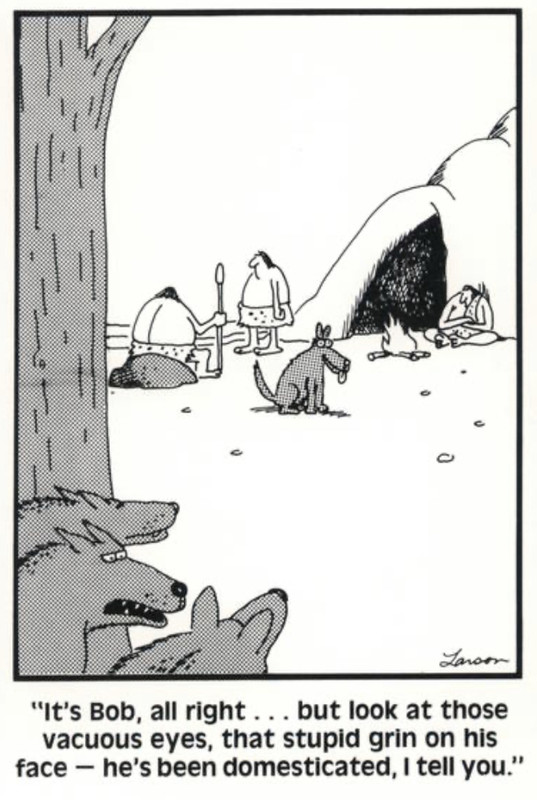Anthropology
Related: About this forumHow different the world would look now if Neanderthals had won
For 99% of the last million years of our existence, people rarely came across other humans
ByPenny Spikins, University of York
07:00, 20 NOV 2022
In evolutionary terms, the human population has rocketed in seconds. The news that it has now reached 8 billion seems inexplicable when you think about our history.
For 99% of the last million years of our existence, people rarely came across other humans. There were only around 10,000 Neanderthals living at any one time. Today, there are around 800,000 people in the same space that was occupied by one Neanderthal. What’s more, since humans live in social groups, the next nearest Neanderthal group was probably well over 100km away. Finding a mate outside your own family was a challenge.
Neanderthals were more inclined to stay in their family groups and were warier of new people. If they had outcompeted our own species (Homo sapiens), the density of population would likely be far lower. It’s hard to imagine them building cities, for example, given that they were genetically disposed to being less friendly to those beyond their immediate family.
The reasons for our dramatic population growth may lie in the early days of Homo sapiens more than 100,000 years ago. Genetic and anatomical differences between us and extinct species such as Neanderthals made us more similar to domesticated animal species. Large herds of cows, for example, can better tolerate the stress of living in a small space together than their wild ancestors who lived in small groups, spaced apart. These genetic differences changed our attitudes to people outside our own group. We became more tolerant.
More:
https://www.cambridge-news.co.uk/news/uk-world-news/how-different-world-would-look-25559371
RandySF
(71,449 posts)aeromanKC
(3,523 posts)BigmanPigman
(52,491 posts)and the question was "What is the population of the world?". The correct answer was 6.4 billion. I said "WOW!" when I learned of. DU the other day that it is 7,800,000,000 my mouth dropped open. We can NOT realistically sustain this way I this planet for much longer.
keithbvadu2
(40,915 posts)Sneederbunk
(15,520 posts)Dan
(4,201 posts)relayerbob
(7,079 posts)Definitely from the shallow end of the gene pool
mopinko
(72,099 posts)if we had descended from gorillas instead of chimps.
hard to argue, except that controlled violence is home sapiens secret sauce.
the world's worst invasive species.
Random Boomer
(4,271 posts)Humans did not descend from chimps.
At one point approximately 6 million years ago, we shared a common aoe ancestor. We went one way, and they went another, eventually ending up as chimps.
GreenWave
(9,786 posts)"Lucy! You got some 'splaining to do!" (Leakey's Lucy, ![]() )
)
This shows that perhaps opposites do attract! There is another problem in that Neanderthals congregated in Southern Italy. Then one day a supervolcano did them in. (At least in that area.)
I wonder if Sapiens met Floresiensis. Do we truly have all the facts in on that one? To do so we need to establish the realm of Gigantopithecus. No small task since folks around that region use its bones and when dissolved... So my question for anthropology would be:
Did humans fail to compete with the much larger Gigantopithecus and the only way to survive was get little quick, a.k.a. Floresiensis?
marble falls
(62,747 posts)... Neanderthal did not accomplish.
GreenWave
(9,786 posts)IIRC, neanderthals had many stillbirths with the baby's head being too large to birth. The mother would also die this way. Perhaps this view has changed in time?
marble falls
(62,747 posts)stopdiggin
(13,175 posts)genetic changes that led to social behaviors - that led in turn to increased populations and densities? Isn't just as likely that the population increases came first - and that social cohesion developed as a result? Sapiens had an inherent 'herd' instinct, that neanderthalensis somehow lacked? Neanderthal more wary, sapiens more 'tolerant?' Evidence?
What we really know is that homo sapiens 'replaced' neanderthal - and we're not even entirely sure that this was by 'out competing' them, with some combination of superior skills, intelligence or adaptation - deliberate extermination (as somewhat common among species competing for resource and territory) - or whether neanderthal, as some evidence suggests, might not have been in the end stages of a natural decline and extinction, when sapiens arrived on the scene.
Random Boomer
(4,271 posts)There are a constellation of both behaviors and body changes that are common to all domesticated species, and it's been proposed that humans also share those traits, as do bonobos. Domestication lowers in-group aggression, making cooperation easier. That cooperation and social cohesion easier, which in turn reinforces selection for less aggressive individuals (since they are disruptive to the success of the group).
In a stressed environment, humans may have had just enough of an edge to survive adverse and changing conditions.
Buckeye_Democrat
(15,098 posts)... fully domesticated yet. Lol!

I was expelled from PRE-SCHOOL for running home (about three miles away), after Mom left me alone with the other kids who seemed like idiots to me. Then the pre-school teacher told my mother over the phone that I'd NEVER do well in school, yet I was always one of the best students in later years... after finally accepting elementary school as a boring part of my life, and my urge to escape subsided. Then I was later gung-ho about school, when it FINALLY got interesting with science and more advanced math classes.
I think people are still slowly evolving, mostly from the selective pressures of society as a whole.
It honestly wouldn't surprise me if autism is indeed more prevalent now, given the pressures of division-of-labor where the hyper-focused on a particular activity tend to excel.